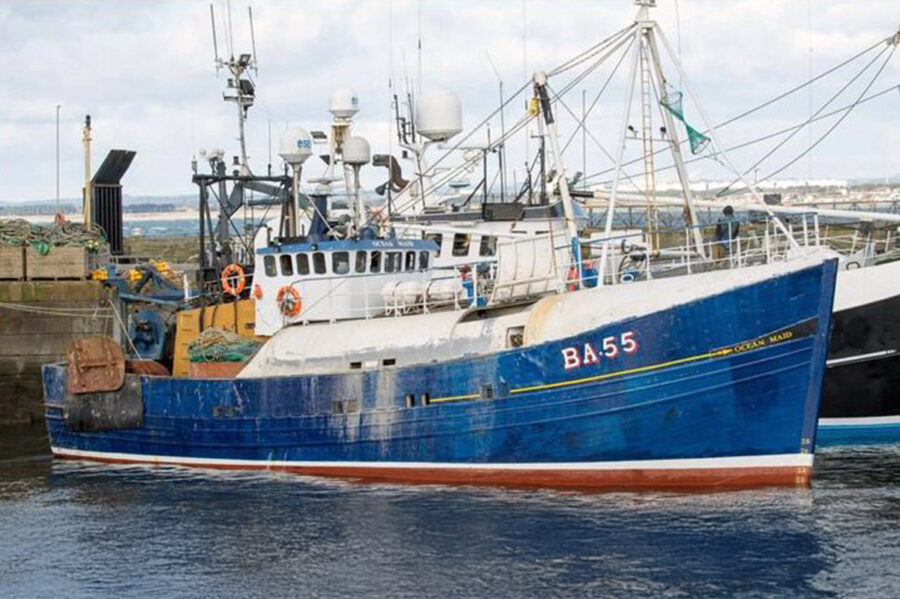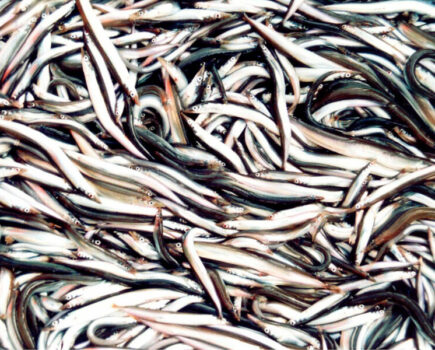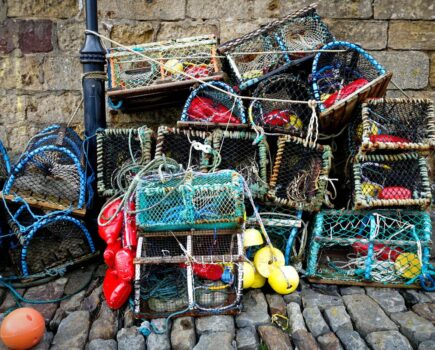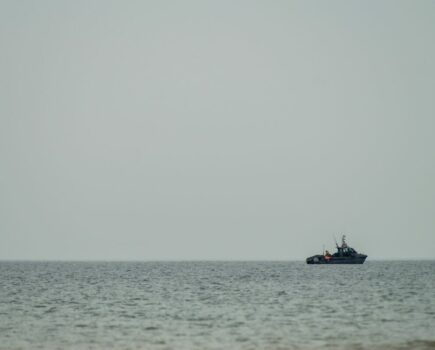The Marine Accident Investigation Branch (MAIB) has released its report into the grounding and subsequent loss of the Ocean Maid BA 55.
The report – the purpose of which is not to attribute fault or blame – says that on the afternoon of 23 October, 2022 the 1986-built prawn trawler left Eyemouth to make an overnight passage to a shipyard in Fraserburgh for planned maintenance and minor repairs.
The vessel’s crew of four included the skipper and his father – the co-owners of the vessel – a watchkeeper and a deckhand. At around 2.40am, the watchkeeper took over the watch from the skipper.
At approximately 5.35am, the watchkeeper checked the estimated time of arrival at Fraserburgh and recalled seeing an ETA of 5.56am ‘or thereabouts’ on the plotter display. Despite reduced visibility owing to drizzle, he could see lights through the wheelhouse windows and ‘believed them to be Fraserburgh’.
The watchkeeper then left the wheelhouse and went down to the galley to make tea for the crew. At approximately 5.39am, he returned to the wheelhouse and reset the watch alarm, which had just started to sound. The watchkeeper also made four course alterations from 5.40am to 5.45am – changes which the report states he ‘did not recall making’.
At around 5.45am, the watchkeeper returned to the galley to finish making the tea and called down to the accommodation to wake the rest of the crew. Four minutes later, as he returned to the wheelhouse, a loud bump was heard as the vessel started to go aground on Cairnbulg Point.
On reaching the wheelhouse, and realising the Ocean Maid was hard aground, the skipper issued a Mayday distress call at 5.50am, and within 15 minutes, all the crew had taken to the vessel’s liferaft.
At 6.12am, Fraserburgh’s RNLI all-weather lifeboat arrived at Cairnbulg Point, and safely recovered all four crew from the liferaft.
The 21m Ocean Maid was aground on Cairnbulg Point for most of 24 October, and had broken up by the following day.
The MAIB report says that the trawler ran aground because the watchkeeper ‘repeatedly’ left the wheelhouse in the period leading up to the incident, and had become ‘disorientated as to the vessel’s position, as there were insufficient active safeguards in place to mitigate risk and prevent the grounding’.
It says that with no formal passage plan, the hazards to navigation ‘were not identified, and led to the watchkeeper’s navigation being reactive and unplanned, increasing the risk of disorientation and the likelihood of grounding’.
The watchkeeper’s ability to maintain an effective visual lookout while in the wheelhouse was also impaired by poor visibility, trips to the illuminated galley, and the light emitted from a television in the wheelhouse. Lack of sleep was also cited as being a likely factor.
The report also notes that the watchkeeper, although ‘experienced and instructed’ in his duties, was not capable of monitoring a plotted passage plan as he ‘lacked the knowledge and tools to do so’.
The report describes the transmission of an early distress call and the prompt decision to abandon Ocean Maid as acts that ‘markedly improved’ the survival chances of the crew.
“It is essential that shipboard practices reflect the risks to safe navigation and crew adapt their routines to ensure watchkeepers are always present in the wheelhouse. This is particularly important during coastal navigation,” the report concludes. A safety flyer to industry highlighting the lessons to be learned from the incident can be accessed here.
The full MAIB report into the accident can be found here.
Following the incident, David Cooper, of Ayr, was charged under the Merchant Shipping Act of 1995 for allegedly leaving the wheelhouse unattended whilst acting in the capacity of watchkeeper.
Main image credit: Alex Young/Marine Traffic
This story was taken from the latest issue of Fishing News. For more up-to-date and in-depth reports on the UK and Irish commercial fishing sector, subscribe to Fishing News here or buy the latest single issue for just £3.50 here.
Sign up to Fishing News’ FREE e-newsletter here.








